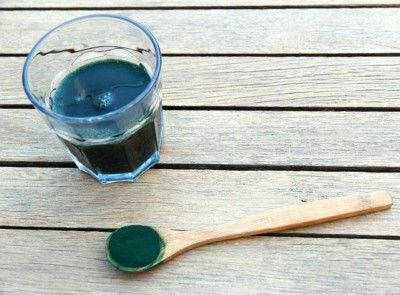Power algae spirulina as a superfood
The power algae spirulina was discovered in our western world only in the past few decades and has since been valued as a „superfood“ due to its vitamin and nutrient richness. Spirulina bundles essential elements for our health and is able to protect the human body against various diseases.
Spirulina – the power algae for health-conscious people
In Western nations, spirulina is now a component of many organic foods and also an important dietary supplement that is commercially available in powder or tablet form, such as in the health store of dr-peterhartig.de. Spirulina is said to have many healing powers, which the Aztecs in Central America have been using since time immemorial.
The blue-green algae is found here as well as in Africa, Australia and Southeast Asia in subtropical to tropical climates and colonizes shallow salt lakes. In order to be able to use the positive characteristics of the plant also in other parts of the world, Spirulina is cultivated today artificially in water basins. Spirulina has always been consumed by all age groups and is therefore suitable as a dietary supplement for health-conscious people.
What makes the power algae spirulina a „superfood“
The inconspicuous power algae Spirulina is a true bundle of important vitamins, nutrients and minerals. Spirulina, for example, consists of about 70 percent protein in dry matter and contains all the essential amino acids. Their content of alpha-linoleic acid, for example, is higher than in any other plant.
Essential minerals in the power algae are mainly calcium, iron and magnesium. In addition, vitamin E as well as beta carotene, as a precursor to vitamin A, can be found in the plant. In addition, vitamin B in the form B12, which is important for our health. Various studies have confirmed the vitamin, nutrient and mineral content and have investigated positive effects of the plant on our body.
Studies show multiple positive effects of spirulina
For about two decades, researchers have been studying the power algae spirulina. Positive effects could be found especially for our immune system. A study in the Journal of Medicinal Food in 2005 observed subjects with nasal allergies (allergic rhinitis) over a period of twelve weeks. During this time, participants were given either a placebo or 1-2 grams of spirulina.
At the end of the study, certain blood values were compared with the initial blood values, which are considered indicators of the immune system. With an intake of 2 grams of spirulina, significant improvements in allergies could be observed. The strengthening of our immune system and our self-healing powers could be confirmed in further studies. Thus, the blue-green algae acts against infections, viruses and pathogens in the body.
As a study in the magazine „Medicine and Science in Sports and Exercise“ proved, Spirulina can also increase athletic performance. In this study, the subjects exercised on a treadmill for two hours a day for four weeks. Again, participants took either a placebo or spirulina. The measurements taken showed that participants with spirulina burned more fat and their fatigue time was significantly reduced.
Brain performance also improved significantly in further studies with spirulina, which can be attributed to the L-tryptophan contained in the spirulina algae. Other studies have found positive effects of the algae on blood and cholesterol levels and that the pigment phycocyanin is able to lower blood sugar levels, protect against high blood pressure and regulate our sense of hunger.
